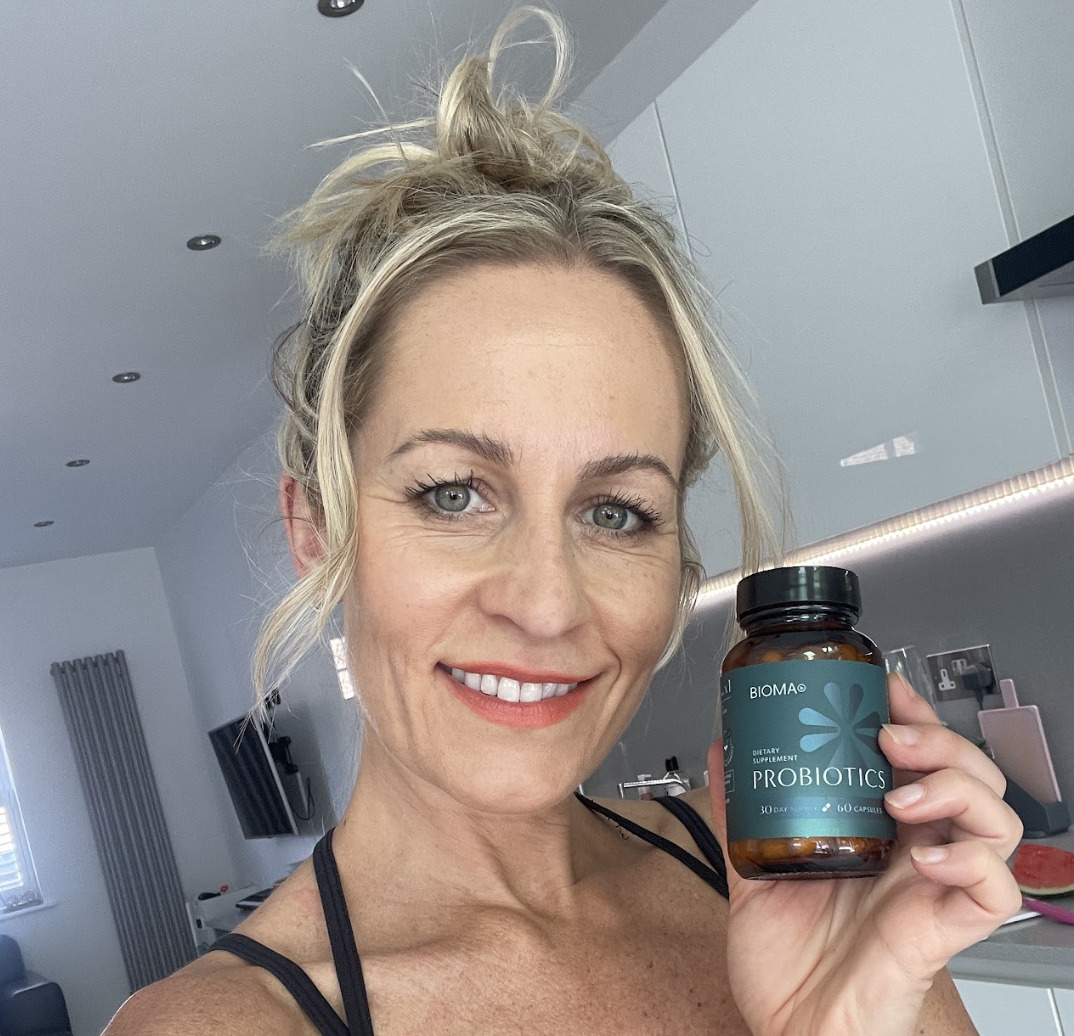Hormonal Hair Thinning: What You Can Do Naturally

What is Hormonal Hair Thinning?
Hormonal hair thinning occurs when changes in your hormones affect the growth cycle of your hair. It’s a common issue that many people, especially women, face due to various hormonal fluctuations throughout life. Hormonal hair thinning is typically associated with conditions such as menopause, pregnancy, postpartum, and polycystic ovary syndrome (PCOS). These changes can lead to thinning, shedding, or even hair loss in some areas of the scalp.
Hair thinning due to hormonal changes is usually temporary and can be managed naturally by addressing the root causes. Understanding how hormones affect hair and what you can do to restore balance is crucial for combating hormonal hair thinning.

How Hormones Affect Hair Growth
The Role of Hormones in Hair Growth
Hair growth is regulated by a complex interaction of hormones. The three primary hormones involved in hair health are:
- Estrogen: The “female” hormone that promotes hair growth. It keeps hair in the growth (anagen) phase for longer, leading to thicker, fuller hair.
- Testosterone: A male hormone that can lead to hair thinning when present in high amounts, especially in women. Excess testosterone can shrink hair follicles, shortening the hair growth cycle.
- Dihydrotestosterone (DHT): A derivative of testosterone, DHT is often the culprit behind androgenic alopecia (male and female pattern baldness). It can shrink hair follicles and slow down hair production, leading to thinning and hair loss.
How Hormonal Imbalances Lead to Thinning Hair
Hormonal imbalances occur when there is an excess or deficiency of certain hormones in the body. This can disrupt the natural hair growth cycle, pushing hair follicles into the shedding phase (telogen) prematurely and slowing hair regrowth.
Some common causes of hormonal hair thinning include:
- Menopause: As estrogen levels decrease, hair may begin to thin or shed more easily. This is one of the most common causes of hair thinning in women over 50.
- Pregnancy and Postpartum: Pregnancy increases estrogen levels, leading to thicker hair. After childbirth, estrogen levels drop, which can cause significant shedding.
- Polycystic Ovary Syndrome (PCOS): PCOS can lead to elevated levels of androgens (male hormones), which contribute to hair thinning, especially around the temples and crown.
- Thyroid Imbalances: Both hypothyroidism and hyperthyroidism can cause hair thinning due to the imbalance in thyroid hormones.

Natural Ways to Combat Hormonal Hair Thinning
1. Maintain a Balanced Diet
A nutrient-rich diet is essential for supporting healthy hair growth, especially when dealing with hormonal hair thinning. Focus on foods that promote hormone balance and nourish hair follicles, such as:
- Leafy greens: High in iron and vitamins A and C, which support hair health.
- Omega-3 fatty acids: Found in fatty fish like salmon, chia seeds, and walnuts, omega-3s help nourish the scalp and promote hair hydration.
- Biotin-rich foods: Eggs, almonds, and sweet potatoes are rich in biotin, which strengthens hair and helps prevent breakage.
- Zinc: Important for hormone regulation and healthy hair follicles. Sources include pumpkin seeds, cashews, and chickpeas.
2. Support Gut Health with Bioma’s Collagen Gummies for hair, skin and nails
An often-overlooked factor in hair health is gut health. Your digestive system plays a key role in the absorption of the nutrients your body needs to nourish hair follicles. If your gut is out of balance, nutrient absorption may be impaired, leading to weak and thinning hair.
These gummies are designed to improve gut health by providing prebiotics and postbiotics, which support digestion and help your body absorb essential vitamins and minerals more effectively. By restoring balance in your gut, Bioma’s collagen gummies for hair, skin and nails can indirectly support hair health and help combat hormonal hair thinning.
Better digestion means better nutrient absorption, which provides your hair with the building blocks it needs for healthy growth.

3. Manage Stress and Hormonal Fluctuations
Chronic stress can significantly affect your hormone levels, particularly cortisol, which can push your hair follicles into the shedding phase. To combat hormonal hair thinning, it’s essential to reduce stress levels. Here are some natural ways to manage stress:
- Meditation and mindfulness: These practices help calm the nervous system and regulate cortisol levels.
- Exercise: Regular physical activity helps reduce stress and boosts circulation to the scalp, promoting hair health.
- Adequate sleep: Getting enough restful sleep each night allows your body to repair itself, including hair follicles.
If hormonal fluctuations are due to menopause, PCOS, or pregnancy, working with a healthcare provider to manage these changes may also help stabilize your hormone levels and minimize hair thinning.
4. Use Hair Care Products that Support Hair Health
Gentle hair care is crucial when dealing with hormonal hair thinning. Harsh chemicals, excessive heat, or tight hairstyles can exacerbate hair breakage and shedding. Opt for products that nourish and protect the hair, such as:
- Sulfate-free shampoos: These help maintain hair moisture without stripping essential oils.
- Scalp treatments: Look for nourishing oils, such as argan or jojoba oil, to massage into the scalp, promoting circulation and healthier hair growth.
- Minoxidil: This over-the-counter topical treatment can stimulate hair growth, especially for those with androgenic alopecia.
Regular scalp massages have also been shown to improve blood circulation and stimulate hair follicles, supporting hair regrowth.

Customer Review
“I had been struggling with thinning hair due to hormonal changes, and nothing seemed to help. After reading this article and learning about the importance of gut health and collagen, I decided to try Bioma’s Collagen Gummies for Hair, Skin, and Nails. The results have been amazing! My hair feels thicker and stronger, and I’ve noticed less shedding. It’s comforting to know I’m taking a natural approach to support my hair growth. These gummies are now a part of my daily routine, and I couldn’t be happier with the results!”
— Lara P., Verified Customer
When to Seek Professional Help
If you notice persistent hair thinning or hair loss despite your efforts to manage hormonal imbalances, it’s important to consult a healthcare provider. Conditions such as hypothyroidism, PCOS, or androgenic alopecia require professional treatment. A doctor may recommend blood tests, hormonal assessments, or prescription medications to help address underlying causes.
For individuals experiencing significant hair loss due to hormonal changes, a dermatologist or trichologist (a hair and scalp specialist) may be able to offer targeted treatments and solutions.
Can hormones really cause hair thinning?
Yes, hormonal imbalances are one of the leading causes of hair thinning. Changes in hormones due to pregnancy, menopause, or conditions like polycystic ovary syndrome (PCOS) can disrupt the hair growth cycle, pushing hair into the shedding phase prematurely. This can lead to noticeable thinning, especially around the crown and temples.
How long does it take to notice improvements after addressing hormonal hair thinning?
It can take 8–12 weeks to notice visible improvements after addressing hormonal hair thinning. Hormonal imbalances take time to correct, and hair grows slowly. By incorporating proper dietary changes, managing stress, and balancing hormones through lifestyle changes or supplementation, you can start seeing better hair health in a few months.
Are Bioma’s Collagen Gummies helpful for hormonal hair thinning?
Yes, Bioma’s Collagen Gummies can help indirectly with hormonal hair thinning. These gummies support gut health, which plays an essential role in balancing hormones. By improving nutrient absorption, the gummies ensure that your body gets the vitamins and minerals needed to support healthy hair, including biotin and zinc, which are crucial for hair strength.
What can I do naturally to prevent hormonal hair thinning?
To prevent and manage hormonal hair thinning naturally, focus on a balanced diet, stress management, and supporting your gut health. Foods rich in biotin, zinc, iron, and omega-3 fatty acids are essential for strong, healthy hair. Additionally, managing stress and getting enough sleep can help balance hormone levels and promote hair growth.
How does stress affect hormonal hair thinning?
Stress can significantly impact hormones, particularly by increasing cortisol levels, which disrupt the hair growth cycle. Chronic stress may cause hair to enter the shedding phase prematurely, leading to thinning. Managing stress through mindfulness, exercise, and proper sleep can help stabilize hormone levels and prevent further hair thinning.
Can hormonal hair thinning be reversed?
Yes, hormonal hair thinning can be reversed in many cases, especially if the root cause is addressed early. With proper treatment, such as balancing hormones through diet, supplements, or medical intervention, many people experience noticeable improvement. However, if the thinning is due to a long-term or severe hormonal imbalance, the process may take more time.
Related articles






